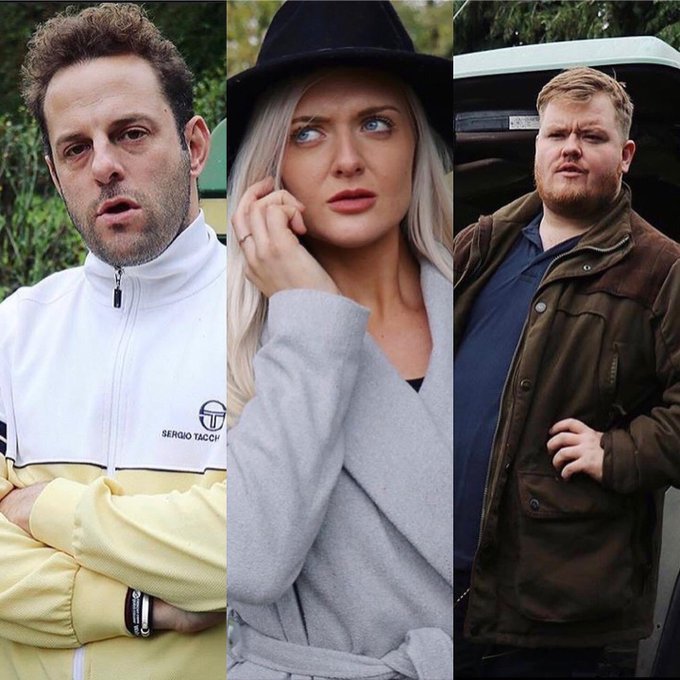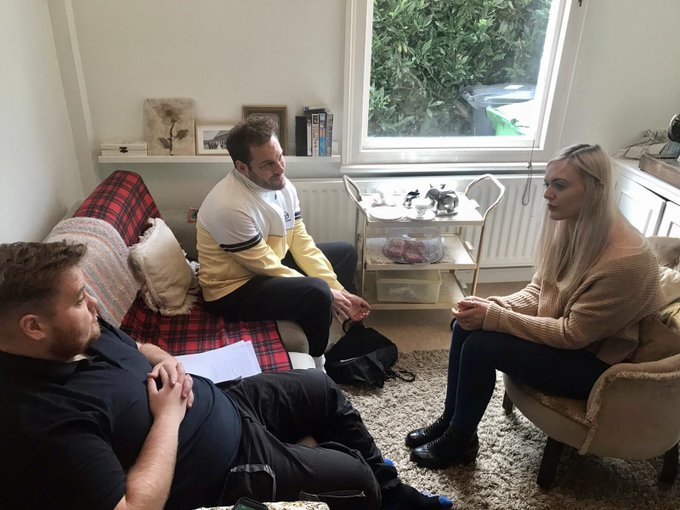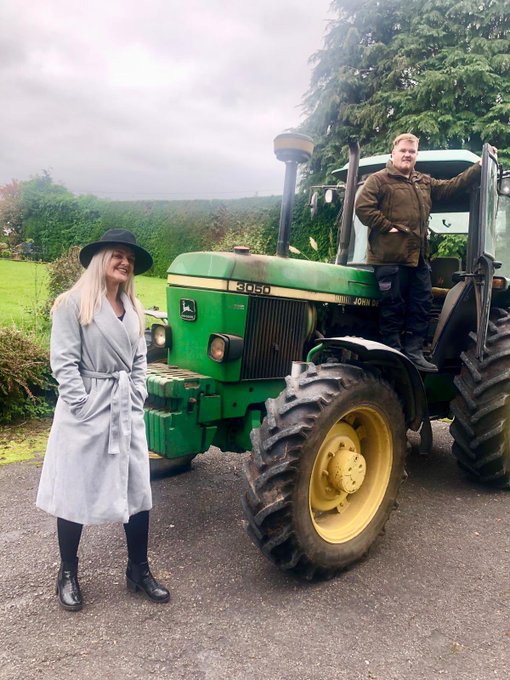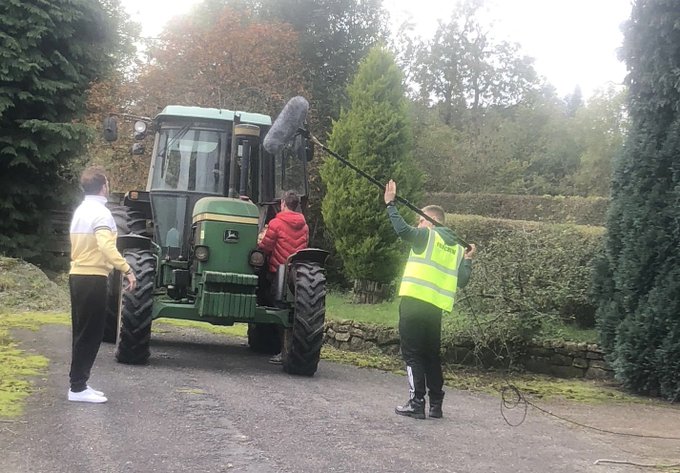Producing Your Own Script – A Comedy Crowder’s Story
Hi. I’m Ed, I wrote my short Mockumentary script “Country Lines”, then recruited a team and project managed the process until the film’s release a few days ago. You can watch the film here. I’m going to try and talk through the pro’s and con’s of making your script, why I think it’s ultimately a good idea, along with some “quite good” advice about what I learn during the process.
Tell me a bit more about you, Ed.
Well, I’ve been writing comedy scripts for about 5 years. Taking courses, entering competitions, doing the odd smart phone character piece, you know the like. About two years ago I set myself the challenge of making three short films with all the stories set in my home county of Shropshire. I’d call the faux production company “Shropshire Investigates”, with the three films all being mockumentaries. Sounds alright so far. A bit This Country, but all good. I wrote and brought to life the first script – About two siblings inheriting a farm with a small, skeleton crew.
Now it was time to make the second film. I’d had the warm up of the first, this next one felt proper. I wanted to move things up a gear. The running time went from six to eleven minutes, I’d direct, there’d be a bigger crew, with a more complex set of scenes too.
But let’s rewind. You may not be as gung-ho as me, so here are some…
Issues to consider before making your script.
Our friends running the Sitcom geeks podcast have regular discussions on the pro’s and con’s of producing your own script. I’m sure they won’t mind me saying that the conclusion is generally not so positive as there are all of a sudden too many uncontrollables which might tarnish an otherwise good script. This is a huge consideration and here are others too:
Time
Writing a good script, even if it’s “just” a short film, takes long enough. It’ll take that time again, plus some, before your film is actually released.
I began writing my script at the end of 2019, and it’s finally out now (March, 2021). But many factors can play into how long it takes to make your film. Such as; script completion time, aligning many diary’s for rehearsals and filming, the potential abyss of the edit, your main prop; a tractor having a flat tire, a global pandemic, etc.
Money
We’re not talking about getting your mate to film you on their iPhone and knocking it together with iMovie. Money will definitely be a consideration.
There’s a big debate on your local actors and film makers Facebook pages about not paying much (or just expenses) for a film crew. I completely get that it’s an issue that needs to be treated with respect. See what you can afford, be upfront about it and if the script is good enough, you will be surprised the quality of talent who want to have their name attached to your credits
The Other Variables
Going back to the Sitcom geeks point made earlier – why risk your perfectly good script by getting half a dozen others involved who may unintentionally dilute the quality of the portrayal of your script? Well, yes, this can certainly be a gamble. But if you do a solid job of recruiting your team, getting the best crew you can, even with a small budget, then you will all of a sudden have a lot of talented people who will be pushing for this film to be a success.

My reasons for recruiting a team and making my short film.
Maybe some of these will resonate with you.
- Getting a broader look at other departments involved in producing a film
I think this will be invaluable experience for me going forward. I was living a very sheltered life as a solo writer.
- Networking
Living in Shropshire (Up to Birmingham, turn left, keep going, just before Wales) it’s hard to find other screenwriters or similar creatives
- Fulfilment
When constantly writing scripts and sending them off, not hearing, or even if I did hear feedback, it never felt like there was a fulfilling end to all the work I put in. With this film I feel like I have a proper finished piece of work now. Like a painter, or a brickie.
- Marketing myself
It really does all depend on the final piece being a fair representation of your work. Or better than fair, ideally. If so (and it’s a big if), then there is no doubt a film is a far better and easier way of bringing attention to your writing.
Recruiting your team
Other than your script, recruiting your team will be the most important factor in making your script.
Tom, our Director of Photography, was recommended to me. He was brilliant, as were all the team. Looking back, one of the most important pieces of knowledge Tom brought to me, was the use of a “casting call” document. This was an imperative tool in recruiting the team.
A casting call essentially gives all the details about your project such as the genre, planned dates for shooting, estimated running time, expenses paid etc, along with a kind of pitch document about the premise, story line and characters. This is the bible document that I used to send to people who would then have all the details needed to decide if it was something they would want to get involved with. Mine was fairly short at 2.5 pages and I’ be happy to share this with anyone if it might help.

With Tom on board and after spending a bit of time getting the casting call right, I set about using this document on the Comedy Crowd TV site (whoop), which is where I recruited one of the actors from, Sean – he messaged me after reading my project page on CCTV. Actor recruitment websites are really useful too (surprisingly enough) It was all pretty easy to set up the adverts and they are free too. The two or three sites are all similar and ask the same questions. With a bit of luck, actors will then apply for your role as you then look through their profiles. Our actress, Amber came through one of these sites.
Finally, social media. I mainly used Facebook, but I can imagine other socials may be useful. Facebook has lots of groups set up for actors and film crew members who are looking for projects to get involved in. Our music composer came through posting on one of these groups. Again using my casting call document… Have I told you these casting call documents are a good idea?!
I was amazed that we had over 30 applicants for the three main acting roles. All had sent in self tapes for certain lines within the film. I had such respect for their efforts. I gather that although my casting call document was really fantastic, that number of applicants was not actually uncommon for other film makers.
So that’s a bit about if making your script is the right approach for you and the recruitment side of things, now for the quick fire round.
Here’s some other tips after making my script
- Just keep buying the team food and drinks when you meet up. This has served me well in everyday life too.
- Unless you know a bit about editing, this stage of the process will blow your mind. You’ll feel like you’ve just been shown the internet for the first time. It’s a whole new world and I barely understand any of it still, but I do know editors are very important! Although don’t let that scare you off. Your script can completely change in the edits, communicate regularly with the editor to make sure your vision is followed as best as possible.
- We had three, three hour rehearsals. They were great fun, and each of the actors had a completely different approach. Work with them separately in between rehearsals. It seems only when everyone is fully confident with their lines does the real chemistry start to happen.
- Carefully, carefully plan your shoot days. They will fly by very quickly and those little details can easily be forgotten.
- Performances come across much more relaxed when everyone has settled in. Plan time for warm ups at the start.
- Get as many team members involved as you can manage! I could have really done with a hand on the shoot day to sort out bit and bobs, props, sound – bloody sound! We missed having a sound pro. That ended up being me. I’m not a pro and those booms are damn heavy!
- Make sure you have a very supportive support bubble. Due to blessed Covid, we had to change locations which meant turfing my partner and daughter out of our house (they had somewhere else to stay!) for a day and a night. There are peaks and troughs in the project but in general it’s a consuming process.
- Continuity of set and costume. Be wary of this over multiple days filming.

Thank you reading. I’m always keen to hear from potential collaborators or maybe just to have a chat about some of the above. Here’s my website with further details.
Also, twitter and the film’s instagram.
All the best,
Ed.
To set up a new comedy project and look for collaborators, or to set up your own creator profile and find projects to get involved in, head to Comedy Crowd TV.

